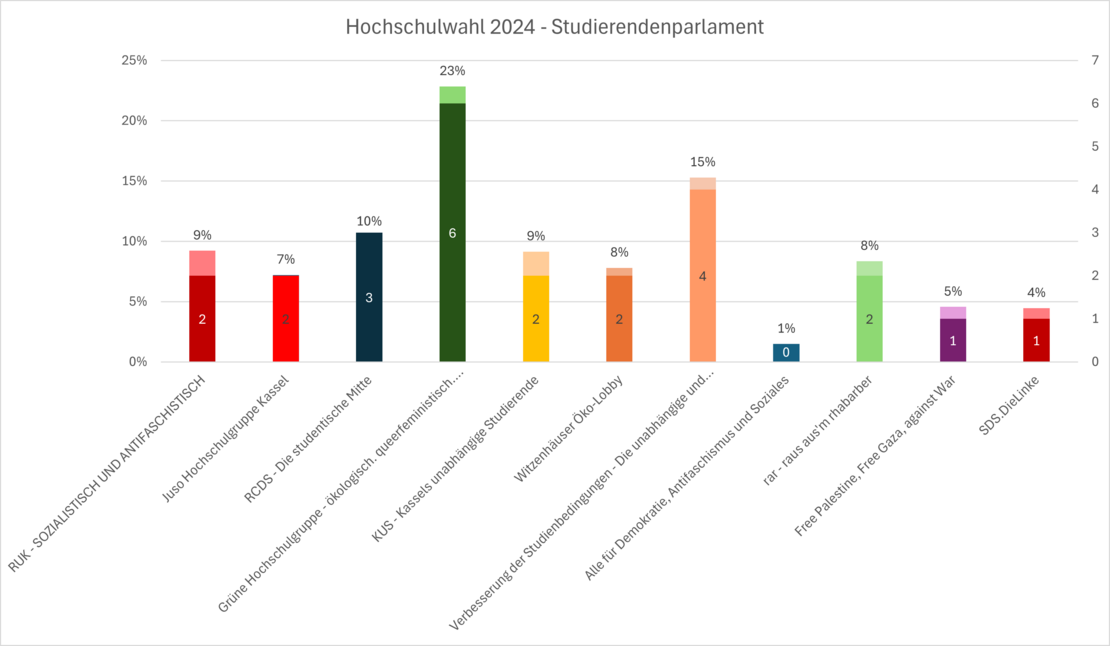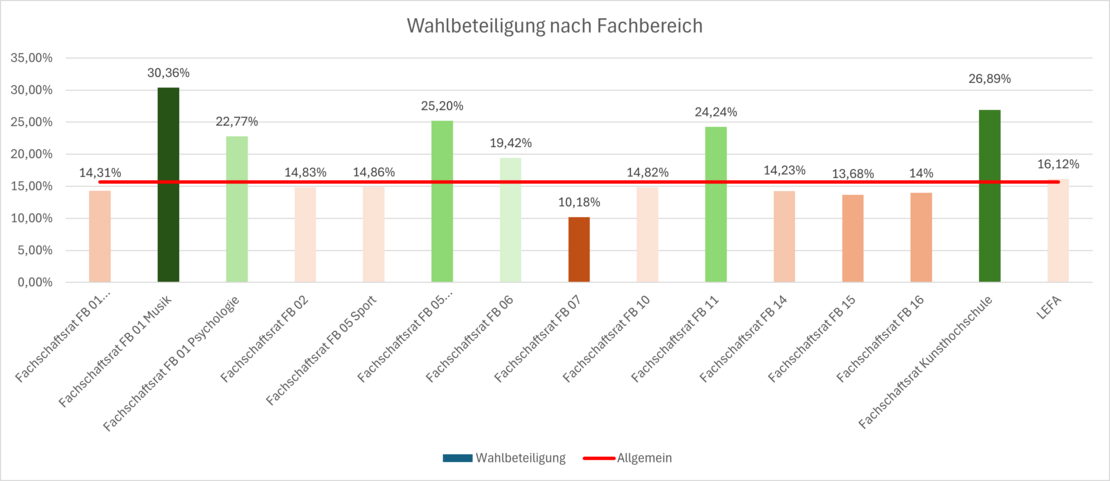Student elections
The content on this page was translated automatically.
Student university election 2025
Student university election 2024
This summer it's that time again, a new student council will be elected. Time for a new mandate and new people for your student councils and departmental councils, the student parliament and the AStA.
Candidate lists for the Student Parliament 2024
Dates
Disclosure of the voters' register: 19.04.2024 to 26.04.2024
During this period, you can check whether your data in the electoral register is correct.
Nomination period: 02.05.2024 until 30.05.2023
During this period, you can submit lists if you want to stand for election.
Application for postal vote: until 20.05.2024
You can apply for postal voting documents up to this date if you do not want to vote online.
Start of voting: 18.06.2024
You can vote from now on!
Panel discussion: 19.06., 6 pm Campuscenter lecture hall 2
All lists running for the Stupa are invited to present themselves and discuss with each other.
List day: 25.06., Mensavorplatz
The lists are invited to present themselves with stands in front of the Mensa.
End of election: 03.07. - 3 p.m.
The last day of the election, the votes are counted from 15:30.
Further information
Here you will find the links to the livestream of the panel discussion as well as articles from the current issue of the university newspaper "DAS ORGAN" of the AK Medien, which deal with the election.
The constituted student body
Like most universities, Kassel also has a so-called constituted student body. This means that all students together form their own body that manages itself, collects fees and holds elections. New elections are held every year and all students have the opportunity to actively and passively participate in the various processes of their student body.
Basics
1 The Student Parliament (StuPA) represents the entire student body, appoints the General Students' Committee (AStA), monitors its work and sets guidelines. The AStA in turn manages the student body's funds and conducts its business.
2. the student councils (FSR) represent the students of a department, organize events for their students, provide support in the event of difficulties and campaign for better conditions in their department.
3. the faculty councils (FBR) are made up of teaching staff, employees and students and organize the faculties. Among other things, they elect the Dean's Office and develop examination regulations.
4. the Senate is the highest decision-making body of the university and decides on the development and structure of the university. It also elects the Presidential Board.
The election takes place as a list election. Lists are similar to parties and bring together a number of people under one name and one political stance. According to their election results, the lists receive seats in the committees, which are then filled according to the order specified in the list.
- The Stupa has 25 seats,
- The Senate has 3 seats for students
- The student councils have between 12 and 20 seats (depending on the size of the faculty)
If there is only one list for a committee, there is an election of persons, whereby the seats to be filled are filled according to the order of the votes received.
If a person receives a seat on a committee based on the position on the list and the election result of the list, but is unable to take up this seat (e.g. because AStA staff cannot hold a seat on the Stupa at the same time), the next place on the list moves up.
No new staff can be added to the lists during a current legislature, i.e. seats may remain vacant during the course of a legislature if an elected list has no staff who can move up.
As part of a democratic society, universities are also democratically organized. Virtually no one in a decision-making position has not been elected to it.
Whether it's professors you like (or not), exam regulations that stress you out (or not), the design of the campus you like (or not) - it's all because people who were elected made decisions. And most of these people were either directly elected in an election like the upcoming one, or indirectly by those who were elected in it.
You could list countless things that affect you in your daily studies and whose future is also decided by the current election. Whether it's the campus garden or the dye shop, the semester ticket or the semester contribution or one of the numerous committees that regulate the many circumstances of studying - all of this can change, for better or for worse.
That's why we need your informed voice and your participation to put capable people in positions where they can vigorously represent your interests.
In many places, you can also get involved in political processes beyond the election itself.
A good first port of call are the student councils, where you can volunteer your time to improve studying in your department. The student councils always need new staff, support and input from the student body.
If you have a more far-reaching concept for the university or the AStA, you can run for the student parliament with a list or see if you can join an existing one. After a successful election, you can position the student body politically there and steer the work of the AStA.
You can also take part in the AStA itself. Either through an elected office (department) in which you can lead an area and pursue your own projects or in one of the many administrative or temporary positions. For the former, it is advantageous to be involved in a list or an FSR. For the latter, you can follow the AStA's active job advertisements.
You can also stand for the Senate in order to participate at the highest level of the university, although the actual scope for action there is rather limited.
Apart from the elections, you can always join one of the many student initiatives that realize their own projects with the support of the AStA.
Organization and election committee
The election is carried out by the AStA's Department for Student Representatives, Networking, Studies and Teaching in cooperation with the University of Kassel's Electoral Office. The student election committee monitors the form and correct conduct of the election.
- Martin Steinbach (Chair)
- Winnie Rottenbacher
- Adem Kisacik
- Erik Stanke
For general questions about the election:
For specific questions or complaints about the implementation:
Further information:


